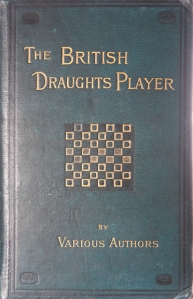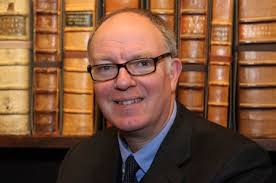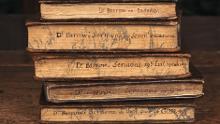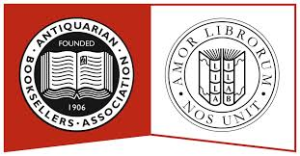| Ardrossan |
Cunninghame District Library |
| Armagh |
Armagh County Museum |
| Banbury |
Bloxham School Library |
| Belfast |
Ulster Museum |
| Berkhamsted |
Berkhamsted School Library |
| Beverley |
Beverley Local Studies Library |
| Bishop Aukland |
Library of the See of Durham |
| Bognor Regis |
West Sussex Institute of Higher Education, Bognor Regis College Lib. |
| Bolton |
Bolton School (Boys’ Div.) Library |
| Bournemouth |
Lansdowne Reference Library |
| Bradford |
Bolling Hall Museum |
| Bridlington |
Bridlington Library |
| Brighton |
Preston Manor |
| Bristol |
John Wesley’s Chapel |
| Bristol |
University of Bristol Spelaeological Society |
| Cambridge |
Scientific Periodicals Library (closing) |
| Canterbury |
Franciscan Central Library (now Franciscan International Study Centre Library) |
| Cardiff |
South Glamorgan County Libs. |
| Cardington |
Cardington Parochial Library |
| Carmarthen |
Carmarthen Museum |
| Cashel |
G.P.A. Bolton Library |
| Chatham |
Royal School of Military Engineering |
| Cheltenham |
Cheltenham Divisional Library |
| Chertsey |
Chertsey Museum |
| Christchurch |
Red House Museum Art Gallery |
| Colchester |
Essex Libraries, Local Studies Department |
| Connemara |
Kylemore Abbey |
| Cultra |
Ulster Folk & Transport Museum |
| Darwen |
Darwen Library |
| Derby |
Derby Central Lib. (Local Studies Dept.) |
| Dorchester |
Dorset County Museum |
| Dorchester |
Dorchester Reference Library |
| Dublin |
Royal Society of Antiquaries of Ireland |
| Durham |
Arts, Libraries and Museums Department, Durham County Library |
| Durham |
Bibliotecha Fransiscana |
| Farnborough |
St Michael’s Abbey |
| Farnham |
Forestry Commission Lib. |
| Farnham |
Museum of Farnham (Waverley Borough Council) |
| Felsted |
Felsted School Library |
| Gateshead |
Gateshead Libraries and Arts Departmet, Central Library |
| Gillingham |
Gillingham Central Library |
| Glasgow |
Library of the Religious Society of Friends, Glasgow Meeting |
| Godalming |
Gerald Coke Lib., King Edward’s School, Witley |
| Grantham |
Grantham Public Library |
| Grantham |
St. Wulfram’s Church |
| Guernsey |
German Occupation Museum |
| Guildford |
Guildford Institute Lib. |
| Haileybury |
Haileybury and Imperial Service College |
| Harrogate |
Harrogate Lib. |
| Harrow |
Harrow Public Libraries |
| High Wycombe |
The Library, Watson Hawksley |
| Holt |
Gresham’s School Library |
| Hull |
Hull Maritime Museum |
| Hull |
Wilberforce House |
| Aberystwyth |
Institute of Biological, Environmental and Rural Sciences, Aberystywyth University |
| Illford |
Redbridge Public Libraries |
| Isle of Man |
King William’s College |
| King’s Cliffe |
Law’s Library, The Library House, King’s Cliffe |
| King’s Lynn |
King’s Lynn Museum Library |
| Kingston-upon-Thames |
Kingston Libraries |
| Kingston-upon-Thames |
Museum and Heritage Centre |
| Lansdown |
Kingswood School Library |
| Leeds |
Leeds Incorporated Law Society |
| Leeds |
Leeds (Roman Catholic) Diocesan Lib. |
| Leeds |
Trinity and All Saints’ College |
| Leominster |
Lord’s Day Observance Society |
| Lewes |
Lewes Area Lib. |
| Lincoln |
Lincolnshire Archives |
| London |
Army and Navy Club |
| London |
Art Workers Guild Library |
| London |
Bank of England Reference Library |
| London |
Barnet Public Libraries Archives and Local History Department |
| London |
British Institute of Radiology, Mackenzie Davidson Library |
| London |
Business Archives Council Library |
| London |
Camden Public Libraries (CPL) – Swiss Cottage Library |
| London |
CPL – Holborn Library |
| London |
CPL – St Pancras Reference Library |
| London |
Catholic Central Library |
| London |
Chelsea Physic Garden |
| London |
Franciscan Friars Minor Provincial Archives |
| London |
French Protestant Church |
| London |
Woolwich Reference Library |
| London |
Plumstead Library |
| London |
Guildhall School of Music and Drama Library |
| London |
Gunnersbury Park Museum |
| London |
Hackney College |
| London |
Hammersmith and Fulham Archives and Reference Libraries |
| London |
Institute of Army Education |
| London |
Institute of Cost and Executive Accountants Library |
| London |
Islington Central Library |
| London |
Islington –Finsbury Library |
| London |
Kensington and Chelsea Public Libraries – all |
| London |
Labour Party Library and Archives |
| London |
Marx Memorial Library |
| London |
Merton Public Libraries |
| London |
Marylebone Cricket Club Library |
| London |
Newham Public Libraries |
| London |
Polish Library |
| London |
Royal Artillery Library and Archives |
| London |
Royal College of Music Library |
| London |
Royal Free Hospital and School of Medicine Medical Library |
| London |
Royal Institution Society |
| London |
Royal Naval College Library |
| London |
Royal Opera House Archives |
| London |
St Joseph’s College |
| London |
Savage Club |
| London |
Savile Club |
| London |
Socialist Party of Great Britain Library |
| London |
Society of Chiropodists Library |
| London |
Southwark Pub Libs: Newington Library |
| London |
Southwark Pub Libs: John Harvard Library |
| London |
Stationers’ and Newspaper Makers’ Company |
| London |
United Oxford and Cambridge University Club |
| London |
United Reformed Church History Society, W B Shaw Library |
| London |
Civil Liberties Library |
| Loughborough |
Co-operative College |
| Luton |
Luton Museum & Art Gallery |
| Lytham St. Anne’s |
Guardian Royal Exchange Assurance Archives |
| Manchester |
Royal Northern College of Music Library |
| Middlesbrough |
Cleveland County Library |
| London (Harrow) |
Middlesex Yeomanry |
| Newburgh |
North East Fife District Lib. Service, Laing Lib. and Museum |
| Newbury |
Newbury Library |
| Newcastle |
Society of Friends Library |
| Newton Abbot |
St Augustine’s Priory Library |
| Newtown |
Powys Lib. Service |
| Northampton |
Northamptonshire Record Society |
| Old Heathfield |
All Saints Church |
| Oxford |
The Feneley Library (Centre for Medieval and Renaissance Studies) |
| Oxford |
Greyfriars Library |
| Plymouth |
City Museum and Art Gallery – Cottonian Collection Library |
| Plymouth |
Devon Library Services – Local Studies & Naval History |
| Pocklington |
Pocklington School |
| Pontefract |
Ackworth School Lib. |
| Portsmouth |
City of Portsmouth Museums and Art Gallery |
| Portsmouth |
Portsmouth Central Library |
| Richmond |
Richmond upon Thames Public Libraries |
| Salford |
Broughton Library |
| Salford |
Walkden Library |
| Sandy |
RSPB |
| Sheffield |
Ecclesfield Parish Church |
| Southampton |
King Edward VI School |
| St. Albans |
Museum of St. Albans |
| Swaffham |
Church of St Peter and St Paul |
| Swansea |
Central Lib., West Glamorgan County Lib. |
| Thetford |
Thetford Library |
| Torquay |
Torquay Natural History Museum |
| Totnes |
Totnes Museum |
| Newark |
British Horological Institute (formerly at Upton) |
| Uxbridge |
Hillingdon Public Libraries |
| Wakefield |
Queen Elizabeth Grammar School Lib. |
| Waltham Abbey |
Abbey Church of Waltham Holy Cross and St Lawrence |
| Waltham Abbey |
Waltham Abbey Historical Society Library |
| Welshpool |
Powysland Lib. |
| Weymouth |
Weymouth Library |
| Winchester |
Winchester District Library |
| York |
The Bar Convent, Institute of the Blessed Virgin Mary |








